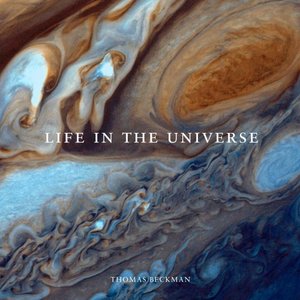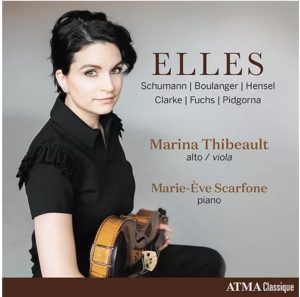
Composer: Thomas Beckman (MMus’16)
Producer: Thomas Beckman
Performers: Thomas Beckman viola, Borealis Quartet, Jarrett Plett percussion, Christopher Blaber vibraphone
Recording details: Redshift Records, April 2019
Link

Composer: Thomas Beckman (MMus’16)
Producer: Thomas Beckman
Performers: Thomas Beckman viola, Borealis Quartet, Jarrett Plett percussion, Christopher Blaber vibraphone
Recording details: Redshift Records, April 2019
Link

Subtitle: Solo Flute Music from the Pacific Rim
Artist: Mark Takeshi McGregor flute
Producer: Mark Takeshi McGregor
Recording Engineer: Don Harder
Digital Editing & Mastering: Don Harder
Recording details: Redshift Records, April 2019
Featured compositions: Nova Pon Wrenegade
Link
Author: Konoval, Brandon
Publications details: Modern Intellectual History 16, no. 1 (2019): 217-49.
Weblink: https://cambridge.org
Abstract: The figure of Oedipus haunted the thought of Michel Foucault from the outset of his tenure at the Collège de France, in association with several key philosophical and historical projects, and enduring until the conclusion of his career. However, it was with Foucault’s account of an “Oedipus complex”—one that operated “not at the individual level but at the collective level; not in connection with desire and the unconscious but in connection with power and knowledge” (“Truth and Juridical Forms,” 1973)—that Foucault was able to enlist Oedipus for a genealogy of “sexuality” and, furthermore, of “governmentality,” such as would increasingly preoccupy him through the mid- to late 1970s. Foucault’s attention to classical texts—in particular the Oedipus Tyrannos of Sophocles and the Republic of Plato—thereby helped to clear a critical pathway through the conventional Marxism embraced by the “repressive hypothesis,” and to arrive at a Nietzschean genealogy of sexuality and power.

Photo by Takumi Hayashi
CD Cover Design by Dina MacDougall
Composer: Jaelem Bhate
Producer: Fred Stride
Performers: Brent Mah, Mo Miao, Steve Kaldestad, Ardeshir Pourkeramati, Adam Kyle saxophones
Michael Kim, Daniel Hersog, Jocelyn Waugh, Silas Friesen trumpets
Kevin Jackson, Cam Henderson, Sean Lavigne, Sharman King, Louis Lam trombones
Andrew MacDonald piano, Ricardo Halabi guitar, Jacques Forest bass, Duran Ritz drums
Recording details: Independent, March 22, 2019

Artist: Marina Thibeault, alto/viola
Compositions by: Ana Sokolović, Dorothy Chang, and Melody McKiver.
Recording details: ATMA Classique, released March 2019
Thibeault’s 2020 JUNO Award-nominated album ELLES honours groundbreaking women composers from Clara Schumann to the present day.
Author: Konoval, Brandon
Publication details: The Oxford Handbook of Max Weber, edited by Edith Hanke, Lawrence Scaff, and Sam Whimster. New York: Oxford University Press, 2019.
Weblink: https://oxfordhandbooks.com
Abstract: No art form drew closer or more sustained attention from Max Weber than music. A lifelong personal passion, music became the subject of a singularly ambitious study in the final decade of his life, resulting in an unfinished monograph, Zur Musiksoziologie (The Rational and Social Foundations of Music [1958]), begun in 1912–1913 and published posthumously in 1921, raising key issues to which Weber returned in other writings. As with his earlier study of capitalism, Weber sought to trace the origins and development of a distinctive cultural product, occidental harmony, that revealed a complex interaction between rational processes both internal to the art and in counterpoint with varied social and historical contexts. Correspondingly, the music study avidly pursued cross-cultural perspectives, a prominent concern for Weber in the aftermath of critical reception to The Protestant Ethic and the Spirit of Capitalism and for which music had become a touchstone in contemporary scholarly and scientific domains. Engaged with diverse contexts and disciplinary perspectives that informed a frequently technical yet cosmopolitan account of Western music and its signal developments, Weber’s music study explored how a sociology of music could be productively founded and what it might aspire to become.

Artist: Mark Anderson piano
Composer: Julius Röntgen
Recording details: Nimbus Records, March 2019
Purchase: Amazon | iTunes (US)
Link
Author: Taylor, Robert and Girard, Jonathan
Publication details: Presented at College Band Directors National Association Conference at Arizona State University, Tempe, AZ, 21 February, 2019.
Abstract: Technology can facilitate collaborative learning, raise performance standards, and increase external visibility immensely. We will discuss strategies for using virtual learning enhance learning and expand creative potential. Whether a technophile or novice, this practical discussion is designed to help you develop a comprehensive plan to influence student learning and create a more visible and exciting concert season.
Author: Fisher, Alexander
Publication details: The Cambridge History of Sixteenth-Century Music, edited by Iain Fenlon and Richard Wistreich, 56-91. Cambridge: Cambridge University Press, 2019
Weblink: https://go.exlibris.link/JPXNDv0n
Author: Hesselink, Nathan
Publication details: Asian Ethnology 78, no. 2 (2019): 515-517.
Weblink: https://jstor.org
Abstract: This book is an exciting new addition to the growing body of academic literature written about non-Western influences on the Western drumset by an active practitioner. Simon Barker, a lecturer in jazz studies at the Sydney Conservatorium of Music, University of Sydney, is a widely known and deeply respected drummer in a number of overlapping genres and groups. These include the Australian jazz ensembles the Matt McMahon Trio, the Phil Slater Quartet, several lineups led by Scott Tinkler, Showa 44, and Band of Five Names; international collaborations with South Korean musicians, such as Trace Sphere, Daorum, and Chiri; and his central role in Emma Franz’s film “Intangible Asset Number 82.”